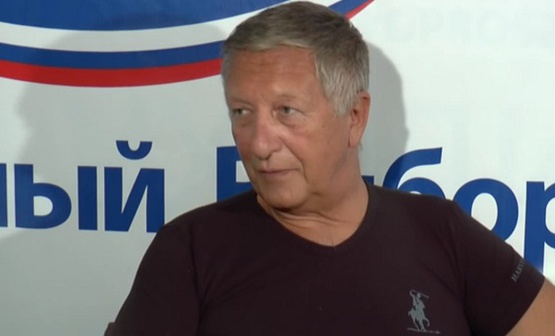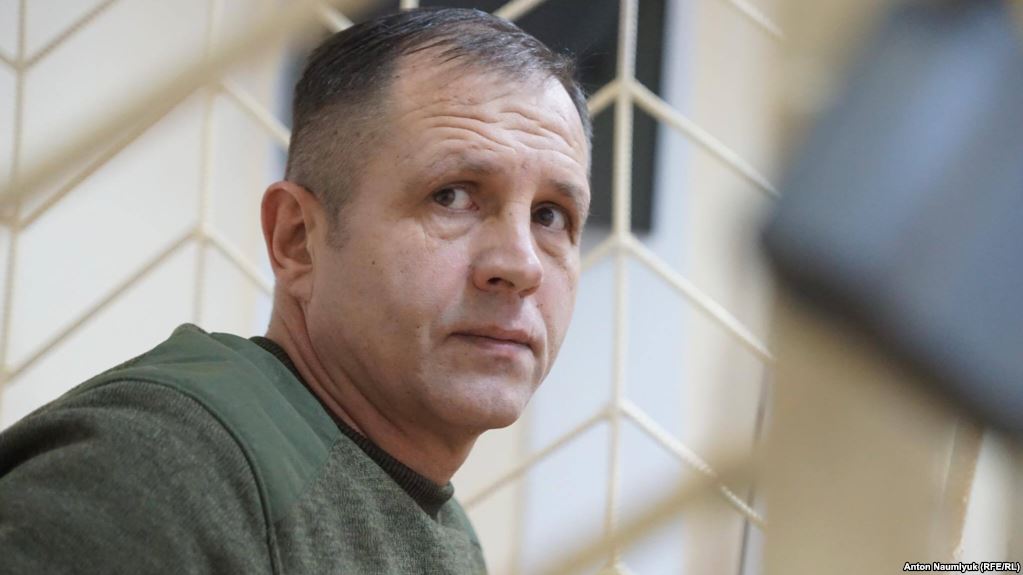Now that Vladimir Putin is focused on Syria and clearly unlikely to stop there, the Ukrainian government should take advantage of the situation by moving militarily to reclaim Russian-occupied territories in the Donbas and Crimea, according to Konstantin Borovoy.

“The attention of the Russian president has been distracted” for the moment by Syria, the Russian commentator says. “But he needs instability in Ukraine, that is his only goal, [and] for Putin the situation now is ideal: no one is trying to change anything, people are negotiating with him as if he were a real politician, and he feels himself someone who is making the decisions.”
No one else is particularly interested in helping Ukraine because “it doesn’t require anything and doesn’t want anything,” Borovoy argues. From the point of view of the international community, everything can continue unchanged for some time to come.
And that means, he continues, that Crimea and the Donbas will remain under occupation.” Indeed, “the situation will change only been Ukraine will begin to resist.”
The refugee crisis has driven Ukraine down to a second or third level in Europe, and there can be “no doubt” that Putin has exploited and accelerated the refugee flow even if it did begin before his bombing. “This is one of the means of creating instability in Europe – the technology of provocation and the technology of the special services.”
“I do not think,” Borovoy says, “this is the last provocation.”
Given that, one must “defend oneself” and not wait until something happens, he continues. “Inaction is very dangerous and even criminal” for European and Ukrainian politicians.
“Today, in spite of itself, Ukraine is fulfilling yet another indirect function: it is taking part in the defense of the international community against aggressive Russia. Putin will not stop at Syria. Provocations against Israel (and it is said this project is already working) and against the Baltic countries are possible.”
In that situation, Ukraine has a responsibility not just to silently sit by and wait for the occupation to somehow end. Some in Ukraine understand that. Among them are the Crimean Tatars. It is reasonable for Kyiv to be cautious, but it is dangerous when caution “becomes cowardice” or even the appearance of cowardice.
Russian citizens and voters, Borovoy argues, “are already tired of the military operation in the Donbas and in Ukraine itself. This propaganda serial has ceased to be interesting to viewers. Therefore, according to all the laws of mass media, an interval has been declared, but this does not mean that the theme is closed for Putin.”
Rather it means, Borovoy says, that Ukraine has an opportunity to being the liberation of the Donbas and Crimea by military means, military because there are no other realistic ones. If Ukraine doesn’t do something, “no one, no Merkel and no Hollande will try for a solution;” and neither will Obama.
Doing nothing as new in fact works to Putin’s benefit: it adds to instability and undermines the trust of Ukrainian citizens in their government. The decision of the Crimean Tatars to blockade Crimea shows that “citizens themselves are beginning to address government problems.”
And that means, Borovoy says, that “the next question which they will ask themselves is this: why do we need such a set of powers if we have to solve state problems ourselves?”
At present, many Ukrainians are saying and some even believe that Russia will eventually give up the occupied territories, but that is a mistake, Borovoy says. When things deteriorate even more, Putin will be even more ready to use military action to deflect criticism from himself.
And there is one other factor and a terribly important one that people in Kyiv need to keep in mind: “in Crimea and in the east of Ukraine are citizens who believe their country and president will at some point liberate them.” The longer time goes on, he implies, the fewer such people there will be.







